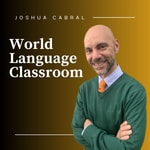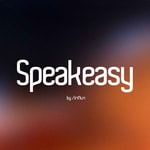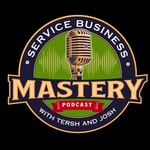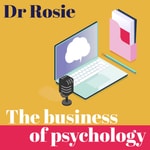World Language Classroom – Details, episodes & analysis
Podcast details
Technical and general information from the podcast's RSS feed.

World Language Classroom
Joshua Cabral, French, Spanish and World Language Teaching Ideas
Frequency: 1 episode/7d. Total Eps: 208

Tips, Tools and Resources for world language teachers who want their students to rise in proficiency and communicate with confidence.
Recent rankings
Latest chart positions across Apple Podcasts and Spotify rankings.
Apple Podcasts
🇬🇧 Great Britain - howTo
26/07/2025#32🇺🇸 USA - howTo
11/07/2025#78🇺🇸 USA - howTo
09/07/2025#91🇫🇷 France - howTo
09/07/2025#95🇺🇸 USA - howTo
08/07/2025#64🇫🇷 France - howTo
08/07/2025#74🇺🇸 USA - howTo
07/07/2025#66🇺🇸 USA - howTo
04/07/2025#73🇺🇸 USA - howTo
03/07/2025#61🇺🇸 USA - howTo
01/07/2025#76
Spotify
No recent rankings available
Shared links between episodes and podcasts
Links found in episode descriptions and other podcasts that share them.
See all- https://chat.openai.com/
695 shares
- https://unsplash.com/
316 shares
- https://wlclassroom.com/
233 shares
- https://twitter.com/WLClassroom
211 shares
- https://twitter.com/Marishawkins
10 shares
RSS feed quality and score
Technical evaluation of the podcast's RSS feed quality and structure.
See allScore global : 83%
Publication history
Monthly episode publishing history over the past years.
Create a Classroom Where Students Use the Target Language Confidently
Season 1 · Episode 160
lundi 2 septembre 2024 • Duration 21:30
#160
What is a discourse community? Essentially, it’s a learning environment where students actively engage in meaningful communication, using the target language to interact, collaborate, and build relationships. It’s a space where every student’s voice is valued and encouraged. Is that what you would like to see in your classroom? I’m guessing you’re thinking, Yes! But, how do we create this space for our students? In this episode I’ll give you five key strategies for building a discourse community in your classroom.
Topics in this Episode:
- High Leverage Teaching Practices from Enacting the Work of Language Instruction by Eileen Glisan and Richard Donato
- A classroom discourse community is a learning environment where students actively engage in meaningful communication, using the target language to interact, collaborate, and build relationships. It’s a space where every student’s voice is valued and encouraged
- 5 strategies to build a discourse community in your classroom, each with tips and examples
- Establish Norms and Expectations
- Promote Student Interaction
- Use Authentic and Meaningful Tasks
- Encourage Reflective Practice
- Model Effective Communication
**Be sure to download the The CI Toolbox. 15 Comprehensible Input (CI) activities for your language classroom to support comprehension and authentic engagement. These suggestions are a compilation of ideas shared on the World Language Classroom Podcast by me and many guests.
Connect with Joshua and the World Language Classroom Community:
- wlclassrom.com
- X (aka Twitter): @wlclassroom
- Threads: @wlclassroom
- Instagram: @wlclassroom
- Facebook: /wlclassroom
- WLClassroom Facebook Group
__________________________
Interested in having Joshua work directly with your department, school or district? Look at options for collaborating in person or remotely.
______________________________
Sign up for Talking Points to get tips, tools and resources for your language teaching.
______________________________
Join Joshua as a guest on the podcast.
______________________________
Join Joshua for a Leveling Up Coaching Episode on the podcast.
Send me a text and let me know your thoughts on this episode or the podcast.
The Inspiring Story of the Mariposa in Nicaragua
Season 1 · Episode 159
lundi 26 août 2024 • Duration 29:21
#159
I have something that I want to share with you as we go into this new school year. If you know me you know that I have talked a lot about my experiences in Nicaragua and I have been there this summer. I had an opportunity to sit down with Paulette Goudge and talk about what this Mariposa experience is and to bring it to you on this episode of the podcast. I can wait for you to hear all about what goes on in La Concha, Nicaragua. So, let's jump in.
Topics in this Episode:
- I have been visiting San Juan de la Concepción, Nicaragua for over 10 years. Hear about my personal experience working with Paulette Goudge and La Mariposa.
- Paulette's first visits to Nicaragua in the 1980's and adopting her daughter.
- The vision for La Mariposa.
- The Mariposa has many community projects to support the local community and provides income to families that would otherwise not be able to earn.
- While La Mariposa is called an eco-hotel and Spanish school, it is so much more than that with all of the volunteer opportunities available.
- Who goes to La Mariposa?
- Sustainable food practices.
- Visit the La Mariposa: mariposaspanishschool.com
Connect with Joshua and the World Language Classroom Community:
- wlclassrom.com
- X (aka Twitter): @wlclassroom
- Threads: @wlclassroom
- Instagram: @wlclassroom
- Facebook: /wlclassroom
- WLClassroom Facebook Group
__________________________
Interested in having Joshua work directly with your department, school or district? Look at options for collaborating in person or remotely.
______________________________
Sign up for Talking Points to get tips, tools and resources for your language teaching.
______________________________
Join Joshua as a guest on the podcast.
______________________________
Join Joshua for a Leveling Up Coaching Episode on the podcast.
Send me a text and let me know your thoughts on this episode or the podcast.
How Do You Assess Your Own Teaching?
Season 1 · Episode 150
lundi 24 juin 2024 • Duration 20:09
#150
How often do we stop to reflect on our teaching? Hopefully we take the time and opportunity to do it regularly so that we are teaching our students as effectively as possible. In this episode I’m going to talk about reflective practice and how we can use this as language teachers. I’ll also include a discussion of success criteria and how this can work into our reflective practice. I know, this all sounds way up there in the theory world. I promise you it’s not and that it’s fairly simple.
Topics in this Episode:
- Reflection can help you to be more creative and try new things. It’s very easy to get stuck in a rut and it can be helpful to think about what you are doing and why you are doing it. This can help to spark new ideas and ways of thinking.
- Reflection in Learning and Professional Development: Theory and Practice, Moon, J. (1999)
- Reflective Practice for Language Teachers:
- Teach
- Assess the effect your teaching has on learning
- Consider what can improve the quality of teaching and learning
- Try the new ideas
- Reflect on effectiveness
- Repeat
- The Success Criteria Playbook John T. Almarode, Douglas Fisher, Kateri Thunder, Nancy Frey (2021)
- Tim Eagan on Episode 60: Leading a Proficiency Focused Language Department
- Success Criteria:
- What will be learned?
- Why is it going to be learned?
- How will I know that it has been learned?
- What will I do with what I learned?
Connect with Joshua and the World Language Classroom Community:
- wlclassrom.com
- X (aka Twitter): @wlclassroom
- Threads: @wlclassroom
- Instagram: @wlclassroom
- Facebook: /wlclassroom
- WLClassroom Facebook Group
__________________________
Interested in having Joshua work directly with your department, school or district? Look at options for collaborating in person or remotely.
______________________________
Sign up for Talking Points to get tips, tools and resources for your language teaching.
______________________________
Join Joshua as a guest on the podcast.
______________________________
Join Joshua for a Leveling Up Coaching Episode on the podcast.
Send me a text and let me know your thoughts on this episode or the podcast.
Class Pacing and Brain Breaks with Fadi Aboughoush
Season 1 · Episode 62
lundi 10 octobre 2022 • Duration 32:07
#62
In this episode, we talk about pacing in our language classrooms. How do we determine the amount of time that students should spend on particular activities? Part of this involves when and how to use Brain Breaks. Fadi Aboughoush, an Arabic teacher in Chicago, has a wealth of information and ideas on this topic.
Topics include:
- class structure and pacing and why it is important to plan in advance, rather than just seeing where things go.
- how long we should spend on activities in the various modes and signs of it being time to move on or take a break.
- the purpose of brain breaks.
- do we need to change activities after a Brain Break, or can we return to the previous activity?
- what makes a brain break effective.
- useful brain breaks that we can try right away.
- Wheel Decide
Connect with Fadi Aboughoush:
- Twitter: @fabughoush
- Instagram: @fabughoush @ArabicwithFadi
- LinkedIn: Fadi Abughoush
- Fadi's NFLC Virtual Summit Workshop on Brain Breaks
______________________________
Work with Joshua either in person or remotely.
______________________________
Sign up for Talking Points for tips, tools and resources for language teaching.
______________________________
Let's connect!
- wlclassrom.com
- Twitter: @wlclassroom
- Instagram: @wlclassroom
- Facebook: /wlclassroom
- WLClassroom Facebook Group
______________________________
Teachers want to hear from you and what you are proud of in your classroom.
Join me on the podcast.
We record conversations remotely, so you can be anywhere.
Send me a text and let me know your thoughts on this episode or the podcast.
Goals and Assessment in the Language Classroom
Season 1 · Episode 61
lundi 3 octobre 2022 • Duration 37:18
#61
In this episode we look at goals, and assessment of those goals, in teaching and learning language. This is the third of 5 episodes dedicated to the book Common Ground: Second Language Acquisition Theory Goes to the Classroom by Florencia Henshaw and Maris Hawkins. Actionable insights and takeaways that you can use right away as you set goals for your students and create the assessments that support students moving toward them.
Topics in the episode:
- ACTFL Proficiency Levels
- Setting Proficiency-Based Goals
- Performance and Proficiency
- Assessment; Integrated Performance Assessments and Rubrics
- Intercultural Communication Goals
- Making the discussion interactive on Twitter with Joshua (@wlcalssoom), Florencia Henshaw (@Prof_F_Henshaw) and Maris Hawkins (@Marishawkins).
Blog posts referenced in this episode:
- Episode 12: ACTFL Proficiency Levels
- Episode 49: Rubrics and Competency Based Grading
- Episode 56: Backwards Design and Planning
Get your own copy of Common Ground. Hackett Publishing is generously offering a 25% discount when you use the code WLC2022. [Available through December 31, 2022].
**The 25% off discount code can be used for any book through the end of December, 2022. Hackett publishes several intermediate language-learning textbooks in Spanish, French, German, Italian, Portuguese, Latin, and Classical Greek. New releases include Cinema for French Conversation, Cinema for Spanish Conversation, and Les Français.
______________________________
Work with Joshua either in person or remotely.
______________________________
Sign up for Talking Points for tips, tools and resources for language teaching.
______________________________
Let's connect!
- wlclassrom.com
- Twitter: @wlclassroom
- Instagram: @wlclassroom
- Facebook: /wlclassroom
- WLClassroom Facebook Group
______________________________
Teachers want to hear from you and what you are proud of in your classroom.
Join me on the podcast.
We record conversations remotely, so you can be anywhere.
Send me a text and let me know your thoughts on this episode or the podcast.
Building & Leading a Proficiency-Based Department with Tim Eagan
Season 1 · Episode 60
lundi 26 septembre 2022 • Duration 41:13
#60
In this episode we discuss building and leading a proficiency-based language department. Tim Eagan, the 6-12 Department Head of World Languages in Wellesley, MA, joins me to talk about his experience leading his department through the process of embracing proficiency.
Topics in the episode:
- contemporary and emerging research and the shift in approach and expectations.
- what collaboration looks like in a proficiency-based department and how this supports consistency, particularly with assessments.
- the objectives and benefits of using success criteria in a language department.
- the essential role of feedback in a proficiency-based program.
- how we get our department members on board.
- www.visiblelearningmetax.com
- Blog Post in Reflective Practice and Success Criteria
Connect with Tim Eagan
- Twitter: @tjeag
______________________________
Work with Joshua either in person or remotely.
______________________________
Sign up for Talking Points for tips, tools and resources for language teaching.
______________________________
Let's connect!
- wlclassrom.com
- Twitter: @wlclassroom
- Instagram: @wlclassroom
- Facebook: /wlclassroom
- WLClassroom Facebook Group
______________________________
Teachers want to hear from you and what you are proud of in your classroom.
Join me on the podcast.
We record conversations remotely, so you can be anywhere.
Send me a text and let me know your thoughts on this episode or the podcast.
Guiding Principles of Second Language Acquisition
Season 1 · Episode 59
lundi 19 septembre 2022 • Duration 35:48
#59
In this episode we look at the guiding principles and fundamentals of language acquisition and how they should influence our teaching. This is the second episode dedicated to the book Common Ground: Second Language Acquisition Theory Goes to the Classroom by Florencia Henshaw and Maris Hawkins. They are very effective at laying out the fundamentals of SLA, and it is essential that we understand these foundations before taking on topics such as goals, assessment, input and output, which will be the focus of the next 2 episodes.
Topics in the episode:
- what it means to acquire language
- when and how acquisition happens
- what communication is and is not
- the importance of communication in acquiring language
- the teacher's role (hint: it's not to explain grammar)
- Making the discussion interactive on Twitter with Joshua (@wlcalssoom), Florencia Henshaw (@Prof_F_Henshaw) and Maris Hawkins (@Marishawkins).
Get your own copy of Common Ground. Hackett Publishing is generously offering a 25% discount when you use the code WLC2022. [Available through December 31, 2022].
**The 25% off discount code can be used for any book through the end of December, 2022. Hackett publishes several intermediate language-learning textbooks in Spanish, French, German, Italian, Portuguese, Latin, and Classical Greek. New releases include Cinema for French Conversation, Cinema for Spanish Conversation, and Les Français.
______________________________
Work with Joshua either in person or remotely.
______________________________
Sign up for Talking Points for tips, tools and resources for language teaching.
______________________________
Let's connect!
- wlclassrom.com
- Twitter: @wlclassroom
- Instagram: @wlclassroom
- Facebook: /wlclassroom
- WLClassroom Facebook Group
______________________________
Teachers want to hear from you and what you are proud of in your classroom.
Join me on the podcast.
We record conversations remotely, so you can be anywhere.
Send me a text and let me know your thoughts on this episode or the podcast.
Equitable Feedback Practices with Ben Tinsley
Season 1 · Episode 58
lundi 12 septembre 2022 • Duration 47:55
#58
This episode was recored live during the National Foreign Language Center's Virtual Summit. Ben Tinsley, a French teacher in Pennsylvania, joins me to talk about equitable feedback in the language classroom. We all know how essential feedback is for students in their language learning process, but does feedback look the same for all students. Ben Tinsley provides insights along with actionable suggestions.
Video of live recording during the NFLC Virtual Summit.
Topics in this episode:
- Culturally Responsive Teaching and how it benefits students.
- Important terminology:
-Equity vs. Equality
-Inclusive Teaching vs. Anti-Racist Teaching - Common inequitable ways of grading/assessment and providing feedback and what we teachers can do so that we are being more equitable.
- How we can be more intentionally equitable.
Connect with Ben Tinsley:
- Twitter (@AfroFranco2)
- Instargram (@AfroFranco2)
- Facebook Group (AfroFranco)
- Website: Afrofranco.com
______________________________
Work with Joshua either in person or remotely.
______________________________
Sign up for Talking Points for tips, tools and resources for language teaching.
______________________________
Let's connect!
- wlclassrom.com
- Twitter: @wlclassroom
- Instagram: @wlclassroom
- Facebook: /wlclassroom
- WLClassroom Facebook Group
______________________________
Teachers want to hear from you and what you are proud of in your classroom.
Join me on the podcast.
We record conversations remotely, so you can be anywhere.
Send me a text and let me know your thoughts on this episode or the podcast.
Common Ground. Why this book? Why Now?
Season 1 · Episode 57
lundi 5 septembre 2022 • Duration 23:27
#57
In this episode I’m beginning my series on exploring Common Ground: Second Language Acquisition Theory Goes to the Classroom by Florencia Henshaw and Maris Hawkins. There will be 5 episodes total between now and the end of October. Today we take a general look at why this book, why now, why I am such a fan.
Topics in the episode:
- Why this book? Why now?
- Why I’m a fan of Florencia Henshaw and Maris Hawkins.
- How the book is set up.
- What to look for in the upcoming episodes devoted to Common Ground.
- Making the discussion interactive on Twitter with Joshua (@wlcalssoom), Florencia Henshaw (@Prof_F_Henshaw) and Maris Hawkins (@Marishawkins).
Get your own copy of Common Ground. Hackett Publishing has generously offered a 25% discount when you use the code WLC2022. [Available through December 31, 2022].
**The 25% off discount code can be used for any book through the end of December, 2022. Hackett publishes several intermediate language-learning textbooks in Spanish, French, German, Italian, Portuguese, Latin, and Classical Greek. New releases include Cinema for French Conversation, Cinema for Spanish Conversation, and Les Français.
______________________________
Work with Joshua either in person or remotely.
______________________________
Sign up for Talking Points for tips, tools and resources for language teaching.
______________________________
Let's connect!
- wlclassrom.com
- Twitter: @wlclassroom
- Instagram: @wlclassroom
- Facebook: /wlclassroom
- WLClassroom Facebook Group
______________________________
Teachers want to hear from you and what you are proud of in your classroom.
Join me on the podcast.
We record conversations remotely, so you can be anywhere.
Send me a text and let me know your thoughts on this episode or the podcast.
Backwards Design and Planning
Season 1 · Episode 56
lundi 29 août 2022 • Duration 19:34
#56
In this episode we look at planning in the language classroom. Whether it is for an entire year, a particular unit or even an individual lesson, backwards design and planning is quite effective. It also helps to ensure that we are focusing on all of the modes and that our ultimate goals are for students to do something with the target language vocabulary, structures and themes that they are learning. It’s all about planning ahead to plan backwards.
Backwards design planning and execution happens in three phases or stages.
- Identify Desired Results
- Determine Acceptable Evidence
- Plan the Learning Experience and Instruction
References in this episode:
- ACTFL Core Practices Blog Post
- Backwards Design Blog Post with Planning Template
- ACTFL Proficiency Levels Blog Post
____________________________________________
Work with Joshua either in person or remotely.
____________________________________________
Sign up for Talking Points for tips, tools and resources for language teaching.
____________________________________________
Let's connect!
- wlclassrom.com
- Twitter: @wlclassroom
- Instagram: @wlclassroom
- Facebook: /wlclassroom
- WLClassroom Facebook Group
____________________________________________
Teachers want to hear from you and what you are proud of in your classroom.
Join me on the podcast.
We record conversations remotely, so you can be anywhere.
Send me a text and let me know your thoughts on this episode or the podcast.









